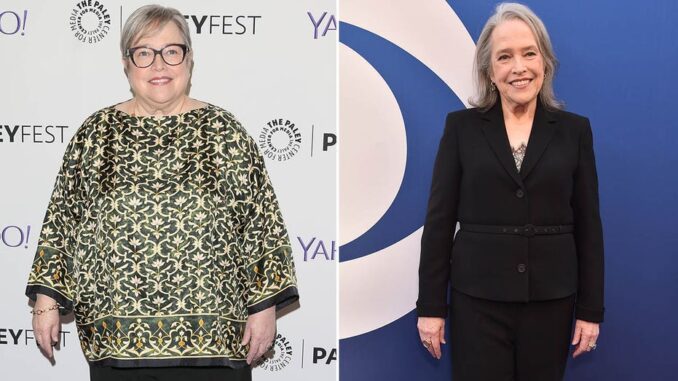
The Unwritten Script: Kathy Bates’ Unconventional Love Life
Kathy Bates, a name synonymous with seismic talent and a gravitas that can shift the very foundations of a scene, has long commanded the screen with a powerful authenticity. From the chilling conviction of Annie Wilkes to the indomitable spirit of Molly Brown, her characters often embody a fierce self-possession that defies easy categorization. What is perhaps less explored, yet equally illustrative of her unique spirit, is the unwritten script of her personal life – a narrative marked by a marriage that blossomed late, a divorce handled with candid grace, and a conscious, unapologetic choice to live child-free. In an industry often fixated on conventional narratives of romance and family, Bates’ journey stands as a quiet, powerful testament to living authentically, on one’s own unconventional terms.
Her “love life,” as it’s often simplistically called, began its public chapter with Tony Campisi. Their relationship wasn’t a whirlwind Hollywood romance splashed across tabloids, but a steady, decade-long partnership forged before they officially wed in 1991. By then, Bates was already a formidable presence, her career ascendant. The marriage itself felt less like a societal obligation and more like a natural evolution of a deep companionship. Campisi, a fellow actor, understood the demanding world she inhabited. Their union, rather than fitting a storybook ideal, was a practical, shared journey, a haven where two individuals could navigate the tumultuous waters of show business together. It illustrated a preference for substance over spectacle, a quiet commitment that mirrored the unassuming yet profound strength she brought to her early roles. It wasn’t about ticking a box; it was about acknowledging a profound connection that had weathered the test of time and professional ambition.
Yet, even the most deeply rooted connections can shift, and in 1997, Bates and Campisi divorced. For an actress whose public persona exuded strength, her candid admission of the pain was striking. She famously described the experience as “soul-crushing,” a raw honesty that cut through the typical celebrity platitudes. This wasn’t a failure, but a profound human experience, and Bates met it not with Hollywood artifice, but with the same unflinching directness she brought to her craft. The divorce, rather than diminishing her, seemed to refine her, pushing her further into a deeper understanding of self. It underscored her resilience, her capacity to navigate heartbreak with dignity, and to emerge not broken, but re-centered. It illustrated that even the strongest individuals are vulnerable, and that vulnerability, when acknowledged, can become another source of strength, fueling artistic expression and personal growth.
Perhaps the most unconventional thread in the tapestry of Kathy Bates’ personal life is her resolute choice to remain child-free. In a society that often equates female fulfillment with motherhood, particularly for women of her generation, Bates quietly and firmly carved her own path. This wasn’t a matter of circumstance or regret, but a deliberate decision, allowing her to pour her formidable energy and focus into her career, her passions, and her own self-discovery. Her “children,” in a sense, became the myriad of unforgettable characters she breathed life into, the stories she helped tell, the emotional landscapes she invited audiences to explore. Her choice illustrates a powerful autonomy, a refusal to conform to societal expectations, and a clear understanding that a woman’s worth and legacy are not solely tied to biological reproduction. It’s a quiet rebellion, a testament to the idea that there are countless ways to lead a rich, meaningful, and deeply impactful life.
Kathy Bates’ unconventional love life – her marriage, her divorce, and her choice to forgo motherhood – are not footnotes to her illustrious career, but rather integral parts of the narrative that defines her as a singular force. They reveal a woman who has consistently chosen authenticity over expectation, substance over surface, and self-knowledge over societal prescription. Her journey illustrates that love comes in many forms, that healing is an ongoing process, and that a life lived fully is ultimately one where the script is written not by others, but by the quiet, courageous convictions of one’s own heart. In a world clamoring for perfect narratives, Kathy Bates offers the more profound, more inspiring truth of an unwritten, fiercely individual, and utterly brilliant life.
